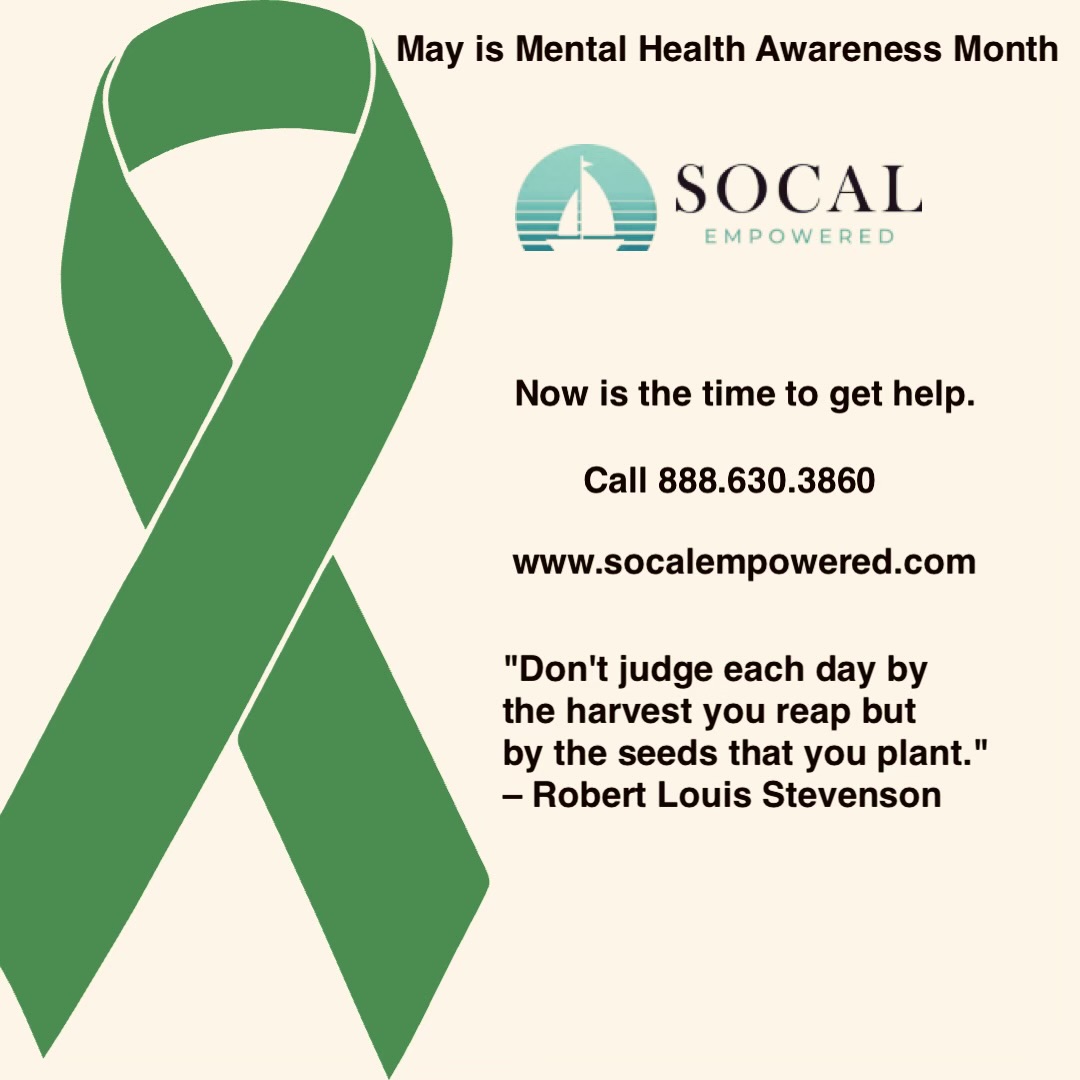May is Mental Health Awareness Month. This is a time for those who are in position to provide as much information as possible to those who may benefit from it. Doing so will hopefully help some recognize potential problems in themselves and loved ones that need professional attention. Heightened awareness may also help to reduce the stigma that is attached to this health challenge. Our team of Orange County mental health professionals is going to contribute to this effort by offering an array of mental health statistics below.
It’s likely more true than not that everyone in the United States knows someone who has either battled or who is currently facing a significant mental health challenge. The mental health statistics below will reinforce that notion. The most urgent need with regards to mental health these days, along with recognition of challenges, is obtaining treatment. We’ll provide a potential pathway to that solution below as well.
5 Daunting National Mental Health Statistics
Mental Health America, or MHA, a public policy advocacy group, publishes The State Of Mental Health In America every year. The link provided allows anyone to fill out a form and download the full report. On a national level, mental health statistics are startlingly troubling. For example:
- In 2019-20, over 50 million American adults were suffering from some sort of mental illness.
- Over 12 million Americans reported experiencing serious thoughts of suicide.
- 11 percent of American adults with mental illnesses were uninsured.
- 55 percent of American adults with mental illness did not obtain treatment.
- That means that 28 million people who need mental health treatment are going without.
Putting each of these mental health statistics in perspective creates an even more troubling reality:
- 50 million people is almost the same number of Americans as the populations of the 10 largest cities in the country combined.
- 12 million Americans, if they all lived in one state, would create the seventh-largest state in the country.
- More than 44 million Americans with mental illness do have some form of insurance.
- The 28 million people not receiving mental health treatment would constitute the third-largest state in the country, behind only California and Texas.
Aside from the raw numbers associated with these mental health statistics, the fact that millions of people with insurance are not obtaining mental health treatment is shocking. We’ve discussed mental health insurance coverage in the past, and one of the big reasons that people do not take advantage of this benefit is because they’re unaware that they exist. Everyone should review their health insurance policies to obtain an understanding of the type of mental health coverage they have.
Mental Health Statistics – State Rankings
In addition to national mental health statistics, Mental Health America breaks down adult data by state, even ranking them based on the following seven parameters:
- Adults with Any Mental Illness (AMI)
- Adults with Substance Use Disorder in the Past Year
- Adults with Serious Thoughts of Suicide
- Adults with AMI Who Did Not Receive Treatment
- Adults with AMI Reporting Unmet Need
- Adults with AMI Who are Uninsured
- Adults Reporting 14+ Mentally Unhealthy Days a Month Who Could Not See a Doctor Due to Costs
States at the top of these rankings are those with the lowest prevalence of mental illness and higher rates of access to mental health care. The 10 best states for adult mental health, according to these rankings, include:
- Kentucky
- Hawaii
- New York
- Pennsylvania
- Wisconsin
- Connecticut
- Tennessee
- New Jersey
- Illinois
- Maryland
The report also ranks states by overall prevalence of mental illness. The mental health statistics used to formulate these rankings include:
- Adults with Any Mental Illness (AMI)
- Adults with Substance Use Disorder in the Past Year
- Adults with Serious Thoughts of Suicide
- Youth with At Least One Major Depressive Episode (MDE) in the Past Year
- Youth with Substance Use Disorder in the Past Year
- Youth with Severe MDE.
The 10 states with the highest prevalence of mental illness include:
- Georgia
- South Carolina
- Texas
- New Jersey
- North Carolina
- Delaware
- Florida
- Maryland
- Wisconsin
- Kentucky
You Can Make a Difference For Yourself and Others
Regardless of the state in which you live, your socioeconomic status, your profession, your age or your gender, mental illness does not discriminate. When it affects someone, it inflicts harm not only on the person suffering, but on that person’s entire family and social network. Far too many people, as seen above, are suffering in this regard and not getting the help that they need. What’s worse is that many people in this position could obtain help but are not necessarily aware of their options.
SoCal Empowered has heard all of this before too many times. We speak to people who urgently need help, and they have health insurance. After reviewing their situation, we find that they do in fact have coverage benefits for mental health treatment. From there, we are able to guide them to the right resource, whether that includes a stay with us or not.
If you or someone you love is suffering from mental health challenges, we urge you to take a look at the following:
Even if you don’t see your insurance company on these pages, you should still give us a call. We have helped many people regain the mental health and happiness they deserved after working with us. We have helped many others find resources that gave them the proper type of help.
Do not allow yourself or a loved one to become an unfortunate entry in the overall body of mental health statistics. Contact us today so we can work together to start tackling this health problem.




